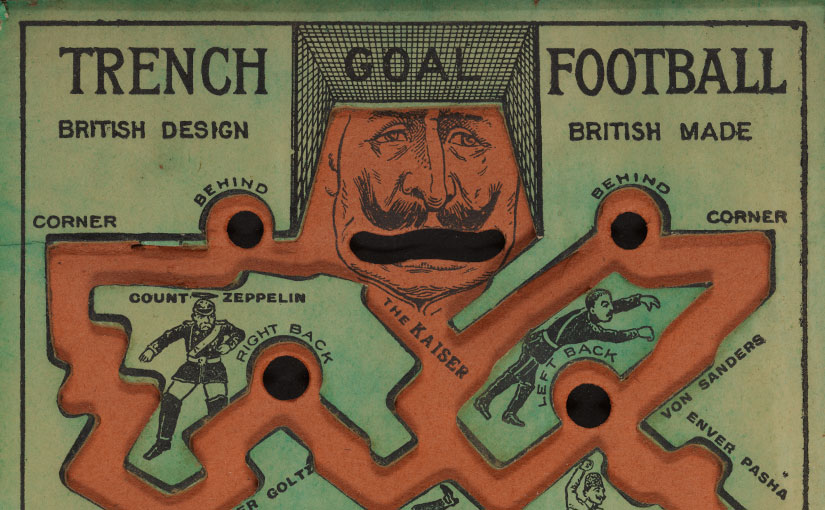by Greg Bond, Sports Archivist and Curator, Joyce Sports Research Collection
In honor of Veterans Day, Special Collections is pleased to highlight its recent acquisition of two British World War One-era patriotic board games. Marketed to the public to generate support for the war effort and to improve morale on the home front, the two manual dexterity marble-based maze games imagined the progress of battles in Europe and reflected British wartime propaganda against Germany.
The two games, manufactured by British toy company R. Farmer & Sons, are encased in wood and under glass, and players must navigate a small metal ball around a recessed playing board and avoid holes distributed around the course.
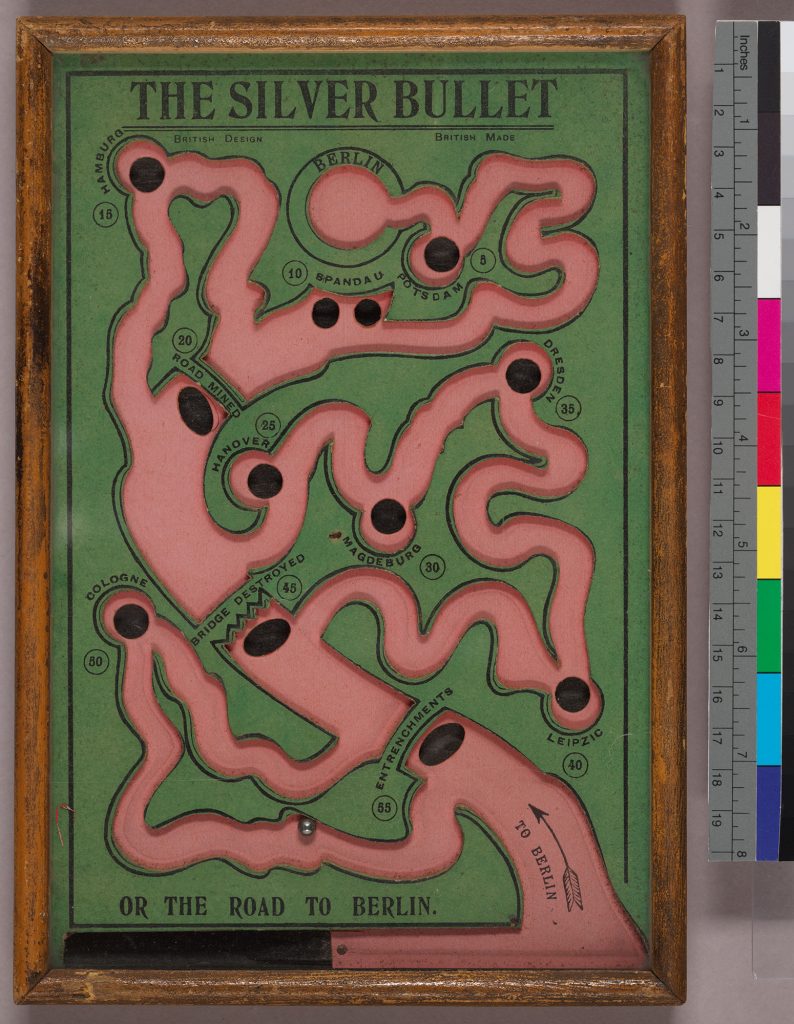
The first game which dates from about 1914 is titled “The Silver Bullet, or the Road to Berlin,” (MSSP 10091) and the playing board depicts the route of a military campaign through Germany with players winning by advancing to Berlin. Along the way, competitors must avoid their ball dropping in holes that depict obstacles like “entrenchments,” “bridge destroyed,” and “road mined,” while also bypassing German cities including Cologne, Leipzig, Magdeburg, Dresden, Hanover, Hamburg, Spandau, and Potsdam.
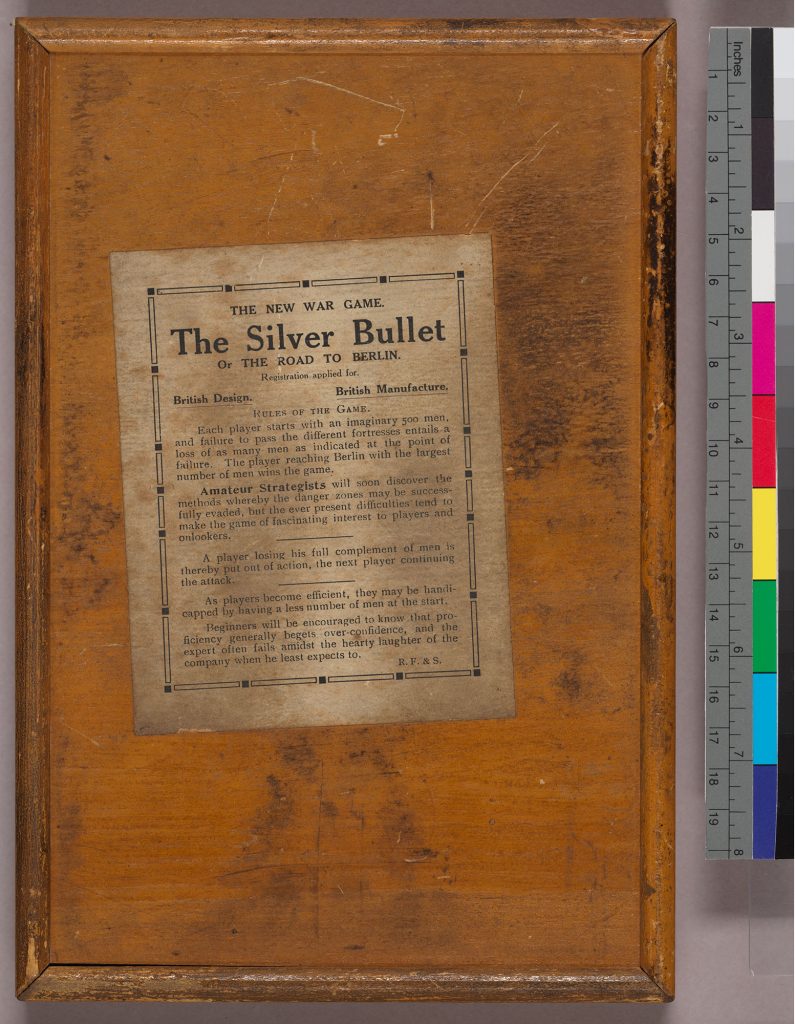
The reverse side of the board promotes this “new war game” and includes the rules for players. “Amateur Strategists,” the manufacturers wrote, “will soon discover the methods whereby the danger zones may be successfully evaded, but the ever present difficulties tend to make the game of fascinating interest to players and onlookers.”
Perhaps as a warning to the public to be cautious about the progress of the war, the rules concluded that: “Beginners will be encouraged to know that the proficiency generally begets over-confidence, and the expert often fails amidst the hearty laughter of the company when he least expects to.”
Following up on the success of “The Silver Bullet, or the Road to Berlin,” R. Farmer & Sons published its second game “Trench Football” (MSSP 10092) in about 1915. Probably in reference to the informal Christmas Truces of 1914 that saw German and Allied soldiers mingling and playing soccer, the “Trench Football” game simulates trench warfare in the guise of a soccer match. Players start at “kickoff” and must navigate their ball around trenches and holes manned by caricatures of German military and political leaders. Competitors win the game by completing the course, avoiding the oversized mouth of the Kaiser, and maneuvering their ball into the “goal.”
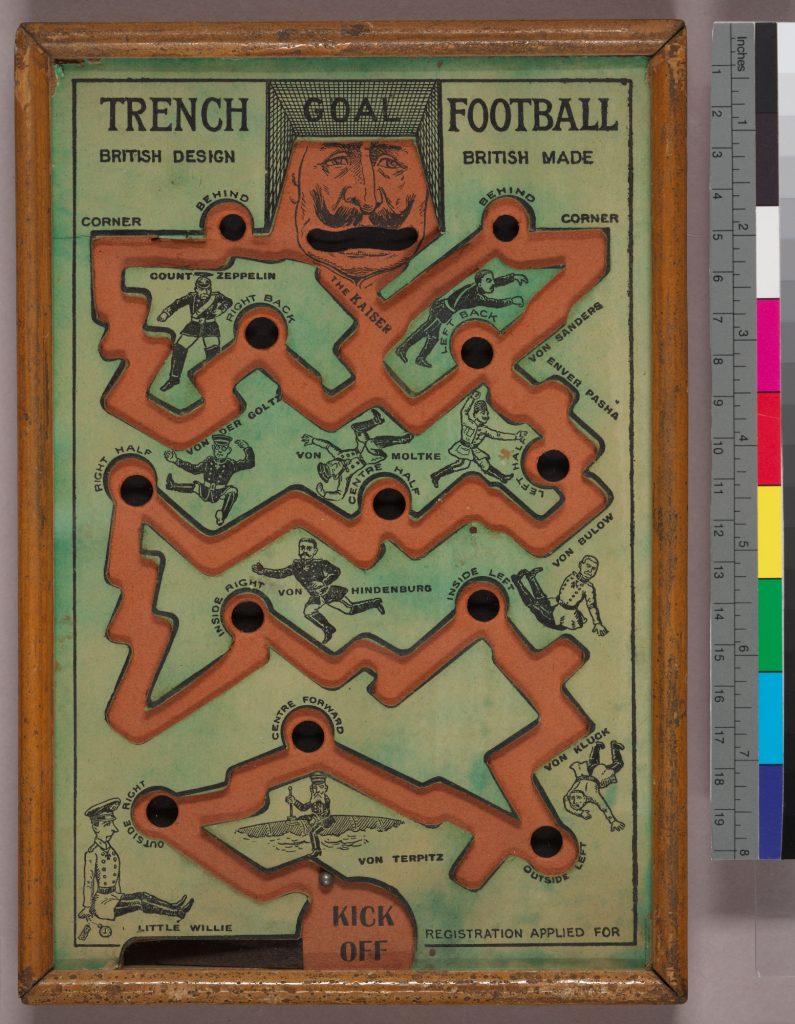
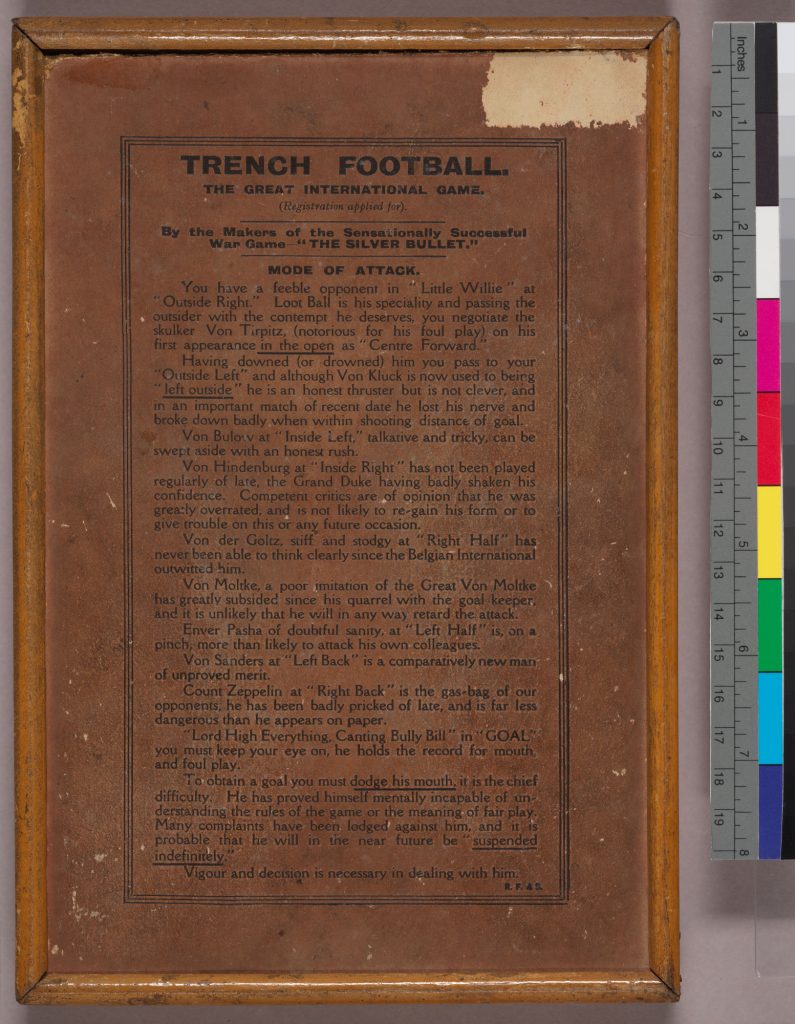
The reverse of the playing board calls “Trench Football the great international game,” and the instructions, labeled “mode of attack,” mock and parody the German leaders on the game board. The instructions, for example, describe the first two defenders that players have to bypass, German Crown Prince Kaiser Wilhelm and Admiral Alfred von Tirpitz, the head of the German Navy, who supported unrestricted submarine warfare:
You have a feeble opponent in “Little Willie” at “Outside Right.” Loot Ball is his speciality and passing the outsider with the contempt he deserves, you negotiate the skulker Von Tirpitz (notorious for his foul play) on his first ever appearance in the open as “Centre Forward.”
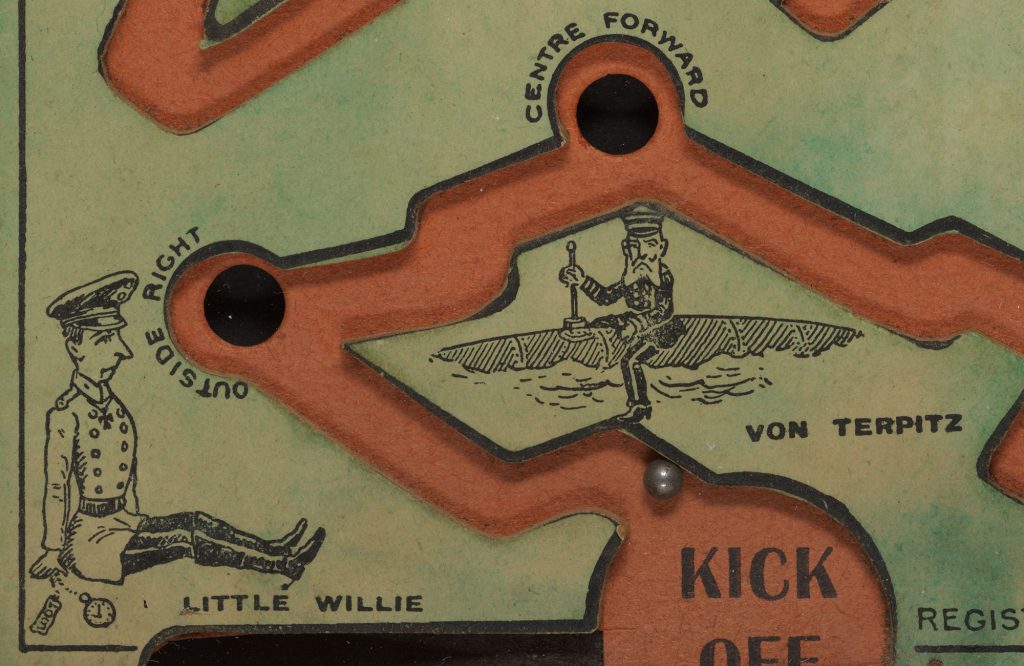
Other German military figures came in for similar ridicule by the makers of the game:
- “Although Von Kluck is now used to being ‘left outside’ he is an honest thruster but is not clever, and in an important match of recent date he lost his nerve and broke down badly when within shooting distance of goal.”
- “Von Hindenburg at ‘Inside Right’ has not been played regularly of late, the Grand Duke having badly shaken his confidence. Competent critics are of opinion that he was greatly overrated, and is not likely to re-gain his form or to give trouble on this or any future occasion.”
- “Count Zeppelin at ‘Right Back’ is the gas-bag of our opponents, he has been badly pricked of late, and is far less dangerous than he appears on paper.”
- “Von der Goltz, stiff and stodgy at ‘Right Half’ has never been able to think clearly since the Belgian International outwitted him.”
The game reserved its harshest criticisms—and accusations of foul play—for Germany’s Emperor, Kaiser Wilhelm II:
“Lord High Everything, Canting Bully Bill” in “GOAL” you must keep your eye on, he holds the record for mouth, and foul play.
To obtain a goal you must dodge his mouth, it is the chief difficulty. He has proved himself mentally incapable of understanding the rules of the game or the meaning of fair play. Many complaints have been lodged against him, and it is probable that he will in the near future be “suspended indefinitely.”
Vigour and decision is necessary in dealing with him.
The Silver Bullet and Trench Football games are both open to researchers and available to the public.
